
Photograph: Natalia Krynicka R YSZARD K RYNICKI , one of Polands most important contemporary poets, was born in a labor camp in Sankt Valentin (Lower Austria) in 1943. Since the 1960s, when he became known as one of the poets of the New Wave, Krynicki has been associated with the democratic opposition in Poland. As a result, he was subjected to censorship and then banned completely from official publication between 1976 and 1980, although he continued to publish with unofficial presses and, in the case of
Our Life Grows (1978), with the Paris migr press Kultura. After working for years as an editor in underground publishing and running a private art gallery with his wife, Krystyna, in their Pozna apartment, he founded the influential publishing house a5 in 1988; from the start, the press focused on contemporary Polish poetry, including the works of Wisawa Szymborska, Adam Zagajewski, and many younger poets. Krynicki is also renowned as a translator of German-language poets, including Nelly Sachs and Paul Celan. A recipient of many prestigious literary awards, he was most recently awarded the Zbigniew Herbert International Poetry Prize in 2015.
He lives in Krakw. A LISSA V ALLES is the author of the poetry books Orphan Fire (2008) and Anastylosis (2014) and the editor and cotranslator of Zbigniew Herberts Collected Poems and Collected Prose. A DAM M ICHNIK is a Polish newspaper editor, writer, and historian. He was jailed by the Communist government in 1968 and twice more in the 1980s and has written extensively about postwar Eastern European politics and history, life under a totalitarian regime, and moral and historical philosophy. Ryszard Krynicki Our Life Grows (Uncensored) TRANSLATED FROM THE POLISH AND WITH AN INTRODUCTION BY ALISSA VALLES
AFTERWORD BY ADAM MICHNIK 
 NEW YORK REVIEW BOOKS, New York THIS IS A NEW YORK REVIEW BOOK PUBLISHED BY THE NEW YORK REVIEW OF BOOKS 435 Hudson Street, New York, NY 10014 www.nyrb.com Copyright 1978 by Institut Litteraire, S.A.R.L., Paris Translation, introduction, and translators notes copyright 2018 by Alissa Valles Afterword copyright 2018 by Adam Michnik All rights reserved.
NEW YORK REVIEW BOOKS, New York THIS IS A NEW YORK REVIEW BOOK PUBLISHED BY THE NEW YORK REVIEW OF BOOKS 435 Hudson Street, New York, NY 10014 www.nyrb.com Copyright 1978 by Institut Litteraire, S.A.R.L., Paris Translation, introduction, and translators notes copyright 2018 by Alissa Valles Afterword copyright 2018 by Adam Michnik All rights reserved.
 | This book has been published with the support of the POLAND Translation program. |
Library of Congress Cataloging-in-Publication data Names: Krynicki, Ryszard, 1943 author. | Michnik, Adam, writer of afterword. | Michnik, Adam, writer of afterword.
Title: Our life grows / by Ryszard Krynicki ; translated by Alissa Valles ; afterword by Adam Michnik. Other titles: Nasze ycie ronie. English Description: New York : New York Review Books, [2017] | Series: New York Review Books Poets | Identifiers: LCCN 2017038180 (print) | LCCN 2017038627 (ebook) | ISBN 9781681371610 (epub) | ISBN 9781681371603 (paperback) Subjects: | BISAC: POETRY / Continental European. Classification: LCC PG7170.R9 (ebook) | LCC PG7170.R9 N313 2017 (print) | DDC 891.8/517dc23 LC record available at https://lccn.loc.gov/2017038180 ISBN 978-1-68137-161-0
v1.0 Cover and book design by Emily Singer Cover photograph: Natalia Krynicka For a complete list of titles, visit www.nyrb.com or write to:Catalog Requests, NYRB, 435 Hudson Street, New York, NY 10014
Contents
INTRODUCTION
De quoi faut-il donc nourrir la posie pour lui garder ce quelle a dindomptable? PAUL CELAN TO GISLE CELAN-LESTRANGE R YSZARD K RYNICKI was born in the Nazi labor camp Windberg in Sankt Valentin, not far from Vienna, in the dark year of 1943. His parents had been deported there from Kozova in what was eastern Poland and is now Ukraine; in May 1945, his father, Stanisaw, was forced to join the Red Army and it was not until 1947 that he could return to his family, now resettled in western Poland. By the time Krynicki started school, Stalinists had consolidated their hold on the Polish state.
An avid reader from early on, he has said that as a teenager, thanks to his encounters with booksespecially those of Edgar Allan Poe, Franz Kafka, and Bruno Schulzhe lived in a half-mythical world, though those were the years of Stalinism. In 1961 he entered Pozna University, where he studied Polish literature and was active as an editor of and contributor to student publications; he left the university before completing a masters thesis on the avant-garde poet Julian Przybo. It was in Pozna in the mid-sixties that he formed a vital friendship with his fellow poet Stanisaw Baraczak. As young poets, Krynicki and Baraczak were soon recognized as leading representatives of what came to be called the Nowa Fala, or New Wave, in Polish poetry. This generation of poets, which also included Julian Kornhauser, Ewa Lipska, Adam Zagajewski, and Rafa Wojaczekwho died very young by his own handfound themselves, as Krynicki said in a later interview, unable to be silent any longer in the face of state-imposed falsehoods. Despite Stalins death and Khrushchevs thaw, Poland in 1968 was a society poisoned and paralyzed by political repression, economic corruption, censorship of the press and the arts, and state-sponsored campaigns against Jews and intellectuals.
The New Wave poets were very different from one another, but they all felt a need to confront the lies, cruelties, and injustices of the Communist regime directly, and some of them felt that the poetry of the previous generation had so far failed to do so. At a poetry festival in 1972, Krynicki publicly criticized Zbigniew Herbert on this countas too oblique, too allegorical in his poetic responses to the political present. Before long, Herbert became a close friend and mentor, and he later dedicated to the younger poet one of his greatest poems, To Ryszard KrynickiA Letter, which addresses the question of how much of his gift a poet owes to his or her times, how much to the timeless riddles of existence. Krynickis first two collections, Akt Urodzenia (Birth Certificate, 1969) and Organizm Zbirowy (Collective Organism, 1975), appeared in editions mangled by the censor. One early poem, Our Special Correspondent, included in this book, has a particularly colorful history. Even under the coy title The Discovery of America, it was cut from the first collection; it was then published in the journal Odra in 1971, where it was the principal reason the renowned poet Tymoteusz Karpowicz lost his position as editor.
Included in the manuscript of Collective Organism, scheduled to appear with the state publisher Czytelnik in the brief period of relaxed censorship that lasted from 1971 to 1973, the poem was one of fifteen the poet was requested to eliminate in a letter he received from the publisher in the summer of 1972. Krynicki refused, and instead printed Our Special Correspondent in a small samizdat chapbook edition titled Wszystko jest moliwe (Every-things Possible) in 1973. From this period on Krynicki suffered repeated harassment by the Polish security police. In an interview he recalled: We as a family were subjected to more than twenty house searches, and it even happened that our daughter was searched on the way to school, to check that she wasnt carrying anything for us. Her school class went on a trip to Budapest but Natalia had to stay at home. She had no passport.

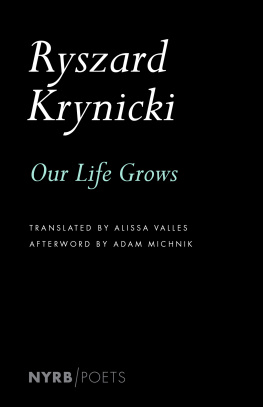
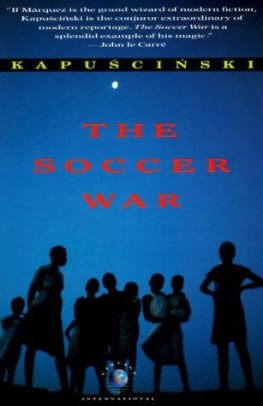


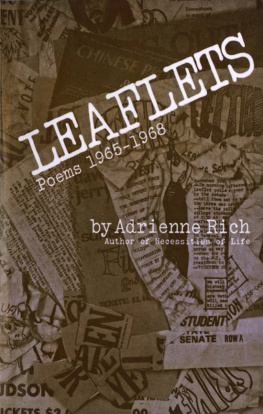
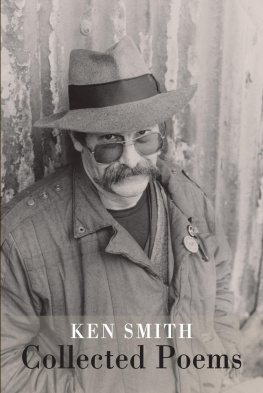
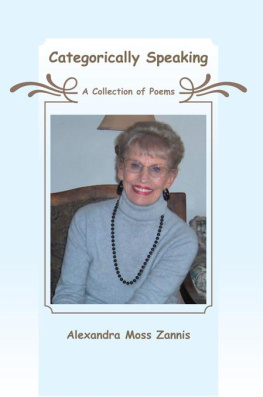
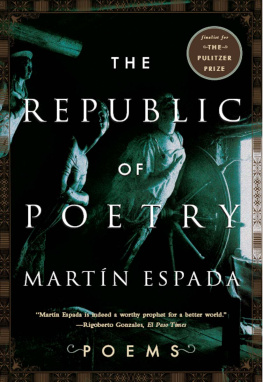

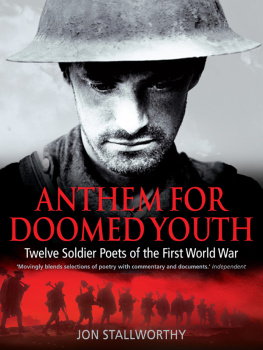

 Photograph: Natalia Krynicka R YSZARD K RYNICKI , one of Polands most important contemporary poets, was born in a labor camp in Sankt Valentin (Lower Austria) in 1943. Since the 1960s, when he became known as one of the poets of the New Wave, Krynicki has been associated with the democratic opposition in Poland. As a result, he was subjected to censorship and then banned completely from official publication between 1976 and 1980, although he continued to publish with unofficial presses and, in the case of Our Life Grows (1978), with the Paris migr press Kultura. After working for years as an editor in underground publishing and running a private art gallery with his wife, Krystyna, in their Pozna apartment, he founded the influential publishing house a5 in 1988; from the start, the press focused on contemporary Polish poetry, including the works of Wisawa Szymborska, Adam Zagajewski, and many younger poets. Krynicki is also renowned as a translator of German-language poets, including Nelly Sachs and Paul Celan. A recipient of many prestigious literary awards, he was most recently awarded the Zbigniew Herbert International Poetry Prize in 2015.
Photograph: Natalia Krynicka R YSZARD K RYNICKI , one of Polands most important contemporary poets, was born in a labor camp in Sankt Valentin (Lower Austria) in 1943. Since the 1960s, when he became known as one of the poets of the New Wave, Krynicki has been associated with the democratic opposition in Poland. As a result, he was subjected to censorship and then banned completely from official publication between 1976 and 1980, although he continued to publish with unofficial presses and, in the case of Our Life Grows (1978), with the Paris migr press Kultura. After working for years as an editor in underground publishing and running a private art gallery with his wife, Krystyna, in their Pozna apartment, he founded the influential publishing house a5 in 1988; from the start, the press focused on contemporary Polish poetry, including the works of Wisawa Szymborska, Adam Zagajewski, and many younger poets. Krynicki is also renowned as a translator of German-language poets, including Nelly Sachs and Paul Celan. A recipient of many prestigious literary awards, he was most recently awarded the Zbigniew Herbert International Poetry Prize in 2015. 
 NEW YORK REVIEW BOOKS, New York THIS IS A NEW YORK REVIEW BOOK PUBLISHED BY THE NEW YORK REVIEW OF BOOKS 435 Hudson Street, New York, NY 10014 www.nyrb.com Copyright 1978 by Institut Litteraire, S.A.R.L., Paris Translation, introduction, and translators notes copyright 2018 by Alissa Valles Afterword copyright 2018 by Adam Michnik All rights reserved.
NEW YORK REVIEW BOOKS, New York THIS IS A NEW YORK REVIEW BOOK PUBLISHED BY THE NEW YORK REVIEW OF BOOKS 435 Hudson Street, New York, NY 10014 www.nyrb.com Copyright 1978 by Institut Litteraire, S.A.R.L., Paris Translation, introduction, and translators notes copyright 2018 by Alissa Valles Afterword copyright 2018 by Adam Michnik All rights reserved.